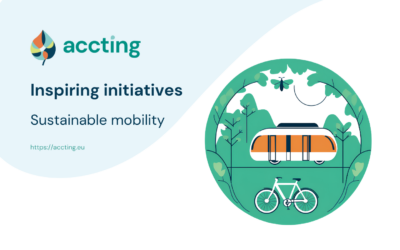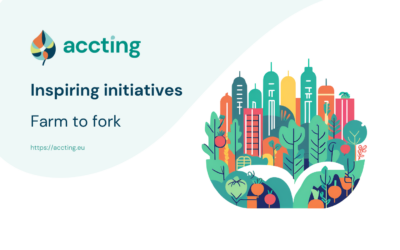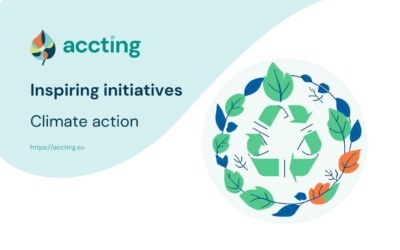Agostinhas: Urban Bikes is an innovative initiative aimed at promoting sustainable mobility in the city of Torres Vedras, Portugal.
Inspiring initiative
Empowering Pensioners with Free Transport
The “Lifetime Cards for Retirees” project in Iasi, Romania, aims to provide pensioners over 65 years old with free public transport.
Fighting food insecurity in Lithuania
Maisto Bankas is a non-profit organisation in Lithuania focused on alleviating food insecurity.
Fighting food waste and food insecurity
Robin Food is a social initiative aiming to limit food waste while ensuring access to healthy food for vulnerable communities. The project connects farmers with surplus produce to low-income groups and social grocery stores.
Empowering mobility for people with disabilities
MeerMobiel is a comprehensive online platform that simplifies transportation for people with disabilities across the Flemish and Brussels regions of Belgium.
A pedal towards opportunity
Bicycle for Kids is a Slovakian initiative providing second-hand bicycles to children from families at risk of poverty.
Empowering seniors through innovative mobility solutions
The SOULMATE project addresses mobility challenges faced by elderly individuals through innovative technology.
Transforming Iasi into a smart and sustainable city
Iasi, Romania, is evolving into a Smart City with the goal of improving the quality of life for its citizens.
A green revolution on two wheels
The Bike to Work campaign, initiated by the Civic Cycling Initiative in Slovakia, has grown from a local event in 2012 to a nationwide movement.
Cycling for change in Bratislava
Founded in 1999, Cyklokoalícia is a civic association dedicated to supporting and promoting urban cycling in Bratislava and Slovakia.
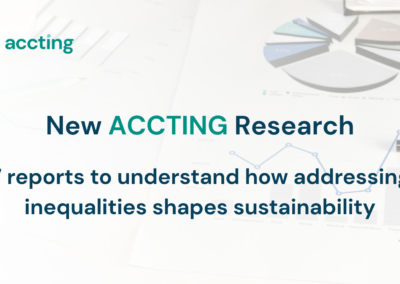
New ACCTING Research Line Reports
As the ACCTING project reaches its final week, we are proud to share the results of its second cycle of research, which are now ... read more
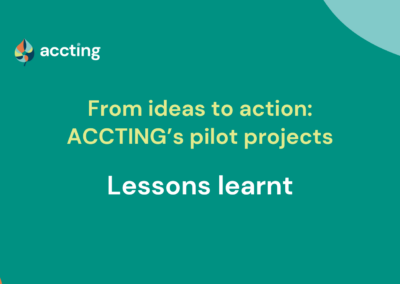
ACCTING’s pilot projects: lessons learnt
A three-part series focusing on the successes, challenges and lessons learnt from ACCTING’s pilot projects. read more
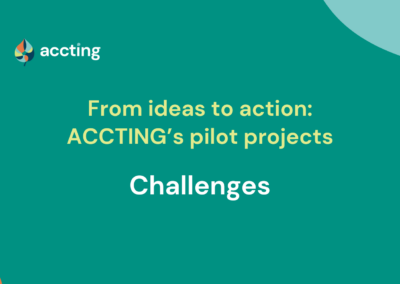
ACCTING’s pilot projects: frequent challenges
This article is part of a three-part series focusing on the successes, challenges and lessons learnt from ACCTING's pilot ... read more

ACCTING’s pilot projects: successes and achievements
A three-part series focusing on the successes, challenges and lessons learnt from ACCTING’s pilot projects. read more
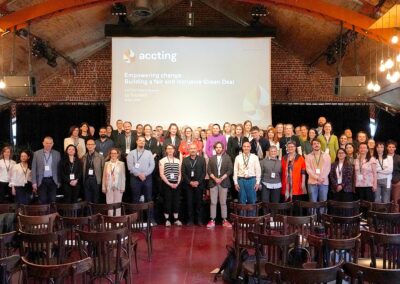
ACCTING Final Conference: watch the replay now!
Last week ACCTING project held its Final Conference in Brussels a key moment to reflect on the project's contribution to building a ... read more
![Women, Villages, Forests: Local Struggle and Solidarity Experiences from Greece and Türkiye [webinar held in Greek & Turkish]](https://accting.eu/wp-content/uploads/2025/05/website-21-400x284.png)
Women, Villages, Forests: Local Struggle and Solidarity Experiences from Greece and Türkiye [webinar held in Greek & Turkish]
Watch the recording: "Women, Villages, Forests: Local Struggle and Solidarity Experiences from Greece and Türkiye" read more
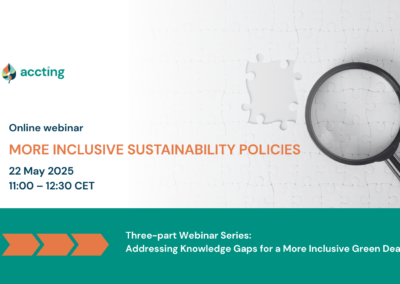
Webinar: More Inclusive Sustainability Policies
Join us on 22 May to discuss how future research can actively shape sustainability policies and support Green Deal objectives. read more
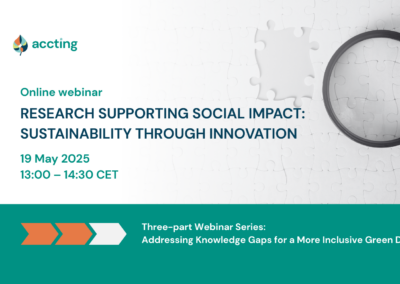
Webinar: Research Supporting Social Impact – Sustainability through Innovation
Join us on 19 May to discuss how research can support innovation and social impact for environmental sustainability. read more
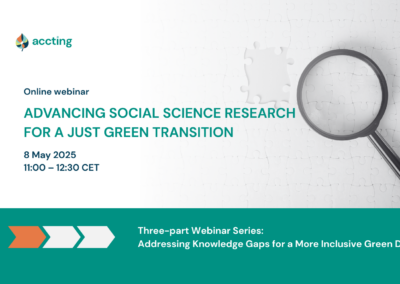
Webinar: Advancing Social Science Research for a Just Green Transition
Watch the replay of "Advancing Social Science Research for a Just Green Transition" read more
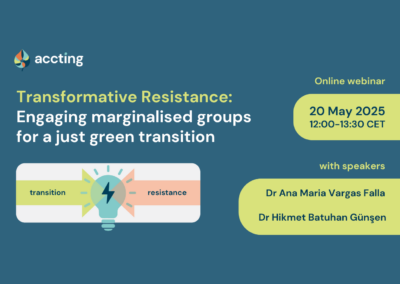
Webinar: Transformative Resistance: Engaging marginalised groups for a just green transition
Watch the recording now! Online Webinar: "Transformative Resistance: Engaging marginalised groups for a just green transition" read more
Newsletter
Keep up to date with the latest project news, developments, and results.

